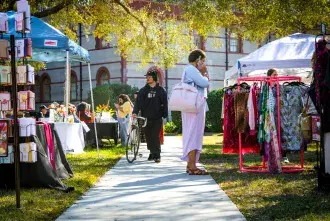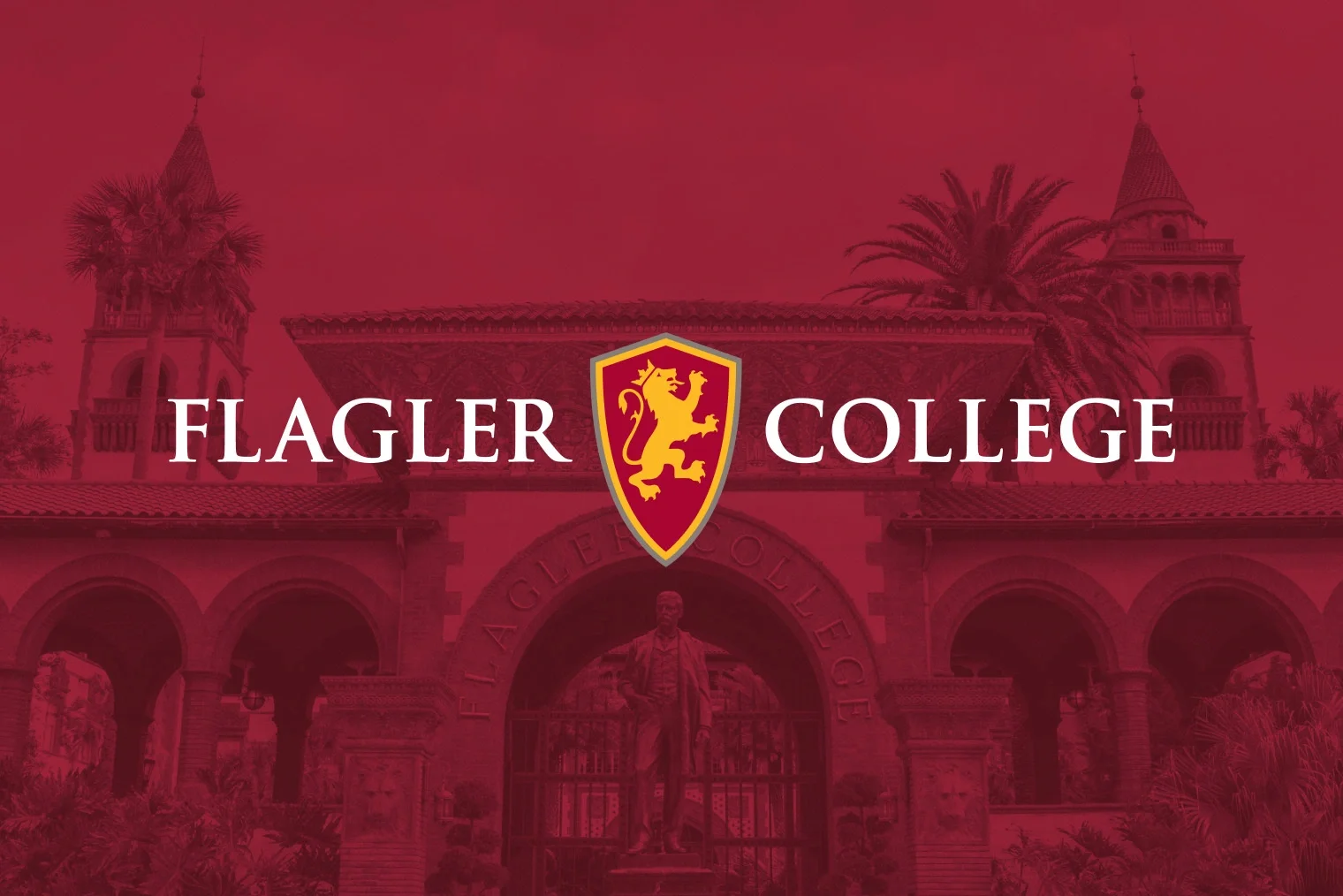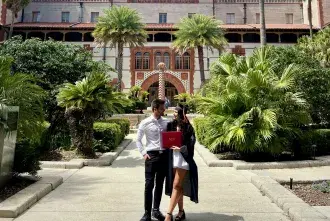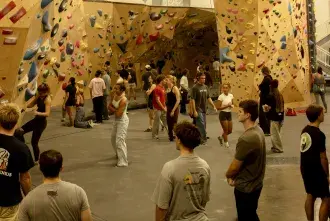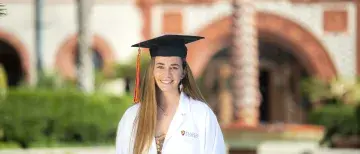
This identity only deepened during her time as a Coastal Environmental Science (CES) major at Flagler College. When Shaw enrolled in a lab course with Professor Matt Brown sophomore year, she didn’t anticipate it would be the catalyst for an undergraduate research career that would set her up for a successful launch into graduate school and beyond.
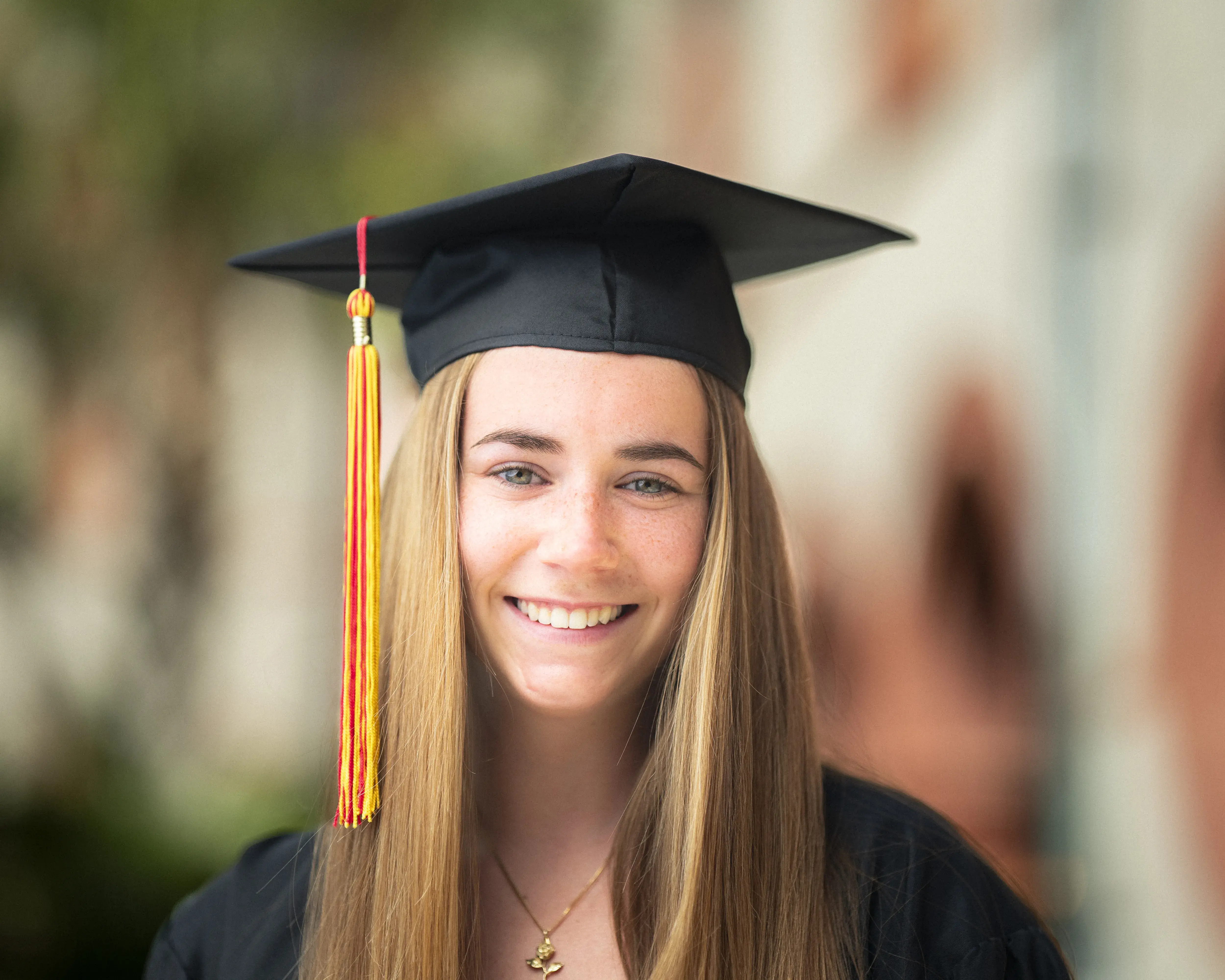
Check out Carly Shaw's #FCGradStory
After accepting a research assistant role with Brown sophomore year, Shaw took a deep dive into field work.
“When I’m not in class, I’m out in the field taking water samples,” Shaw said. “I'm probably in the lab and in the field more than I am in the classroom.”
Under Brown’s mentorship, Shaw and peer researchers collected and analyzed water samples for fecal bacteria to identify untreated waste. A goal of this work, which recently received additional grant funding from the Siemens Foundation, is to trace sources of potentially harmful fecal input to the San Sebastian River. (Shaw and Brown featured in below photo.)
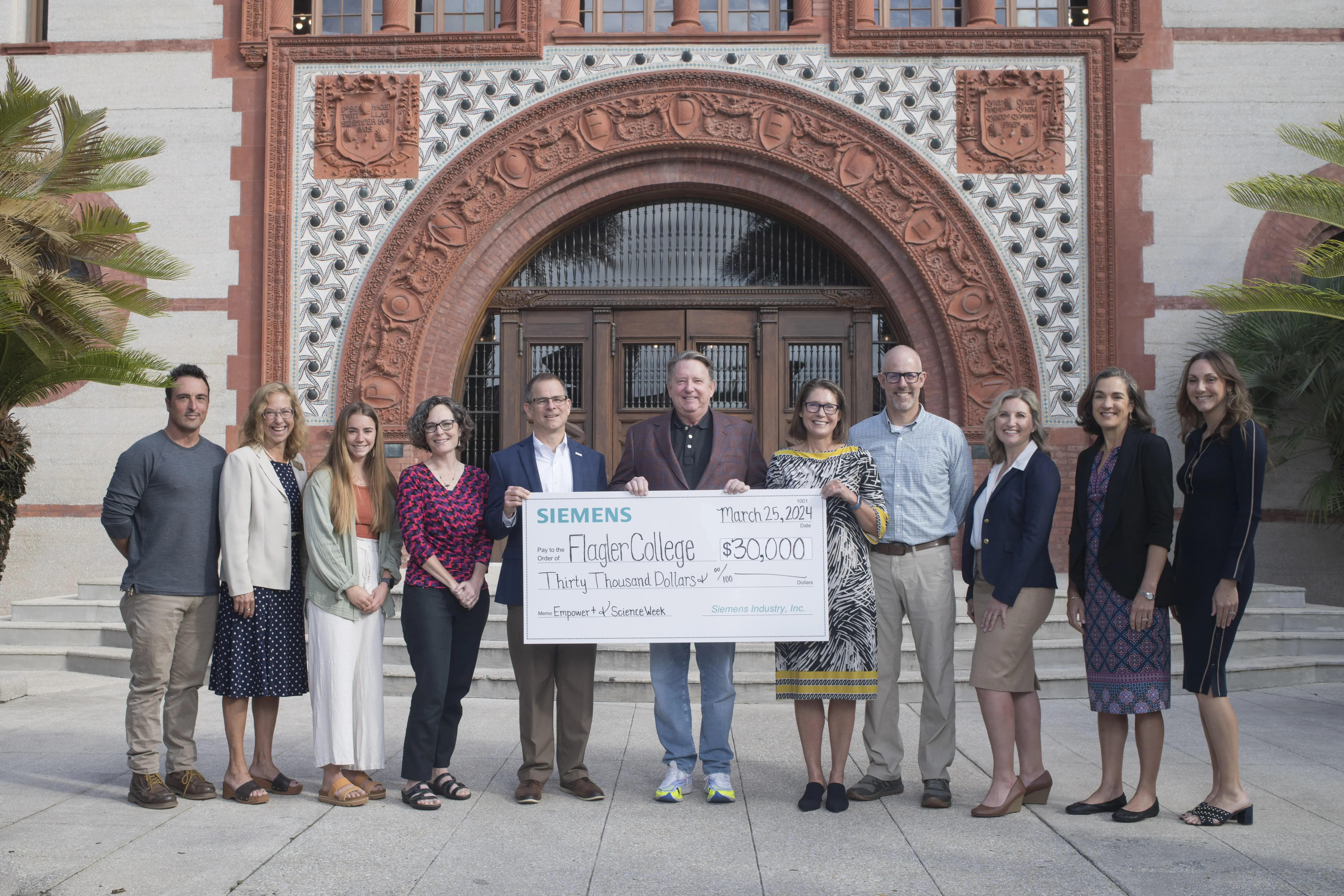
A recent episode of Flagler’s Breaking Eggs Podcast titled, “A Chat with the Natural Sciences” featured Brown and three CES students, including Shaw. She told Brown, who later became her faculty mentor and research advisor, that taking his water quality research lab sophomore year was “the best decision,” she made at Flagler.
Outside of his duties as an associate professor of Natural Sciences, Brown conducts research on local water quality, an independent scientific pursuit he was able to offer a lab around.
“Flagler’s interesting because we’re not an R1 or ‘research first’ school; our professors are focused primarily on teaching their students,” Shaw said.
Brown confirmed this dynamic, acknowledging that as a faculty member at a “teaching college” like Flagler, his primary job is to teach.
However, regardless of quality of instruction being a primary focus for Flagler Faculty, Shaw, speaking from experience, noted the ample opportunities for involvement in the independent academic and scientific work of professors.
“I love teaching, but as a scientist, I equally love promoting and mentoring undergraduate research,” Brown said.
Conducting or aiding in research as an undergraduate student is an opportunity Shaw sees as “much less competitive, and much more intimate,” at Flagler than it would be at a larger university.
But as someone who sees themselves as a “pretty anxious person,” Shaw said that taking the research assistant role and getting more involved in the Coastal Environmental Science program wasn’t easy.
“Stepping out of your comfort zone is just the most transformative thing that you can do,” Shaw said. “Starting undergraduate research, that was stepping out of my comfort zone.”
Shaw credits this leap of courage for also expanding her social circle and confidence at Flagler. In fact, it was through two peer researchers that she was introduced to the Dive Club which she earned her diving certification to join.
“That’s how I started meeting people in our major and at our school,” she said. “It’s not something I ever would have expected from starting research, you know, it opened the doors socially for me in so many ways.”
Senior year, Shaw had the opportunity to co-present a poster about her work with Brown’s research at the national Coastal and Estuarine Research Federation conference. According to Brown, it’s an “uncommon” but incredibly valuable occasion for bachelor’s students to present research at this national level, opposed to the scale of an undergraduate research conference of peers.
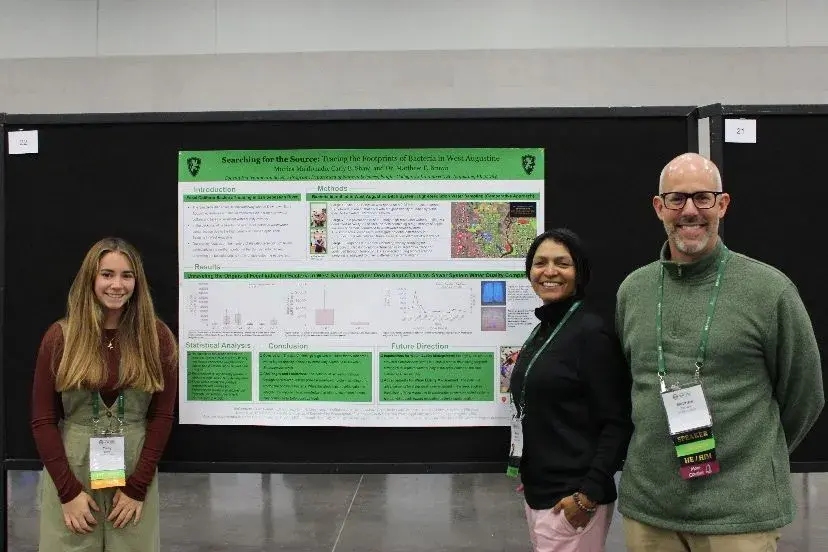
As the youngest scientists in the room, Shaw said it was also a “a great time to learn from professionals,” and an incredibly valuable networking environment where a simple interaction could pay off in a big way.
“I remember I was at one of the sessions listening to research and I was sitting next to Dr. Brown, and there was this Ph.D. student from the University of Connecticut sharing her work with salt marsh restoration and looking at greenhouse gas fluxes," she said.
Brown encouraged her to go up after and connect.
“Our job as professors is to give you guys experience and wings and watch you fly,” Brown said.
The Ph.D. student told Shaw her research advisor at the University of Connecticut (UConn) was “looking for a master’s student. She gave me [the advisor’s] contact information, I reached out to her, I applied to the University of Connecticut, and that’s where I'm going for my master’s program (Natural Resources and the Environment) for the next two years.”
As an undergraduate researcher at Flagler College, Shaw was immersed in the study of St. Augustine’s coastal environments and equipped with technical skills that set her apart in reaching post-graduate goals. Now, she’s headed to UConn with fully covered tuition and a $32,000 stipend.
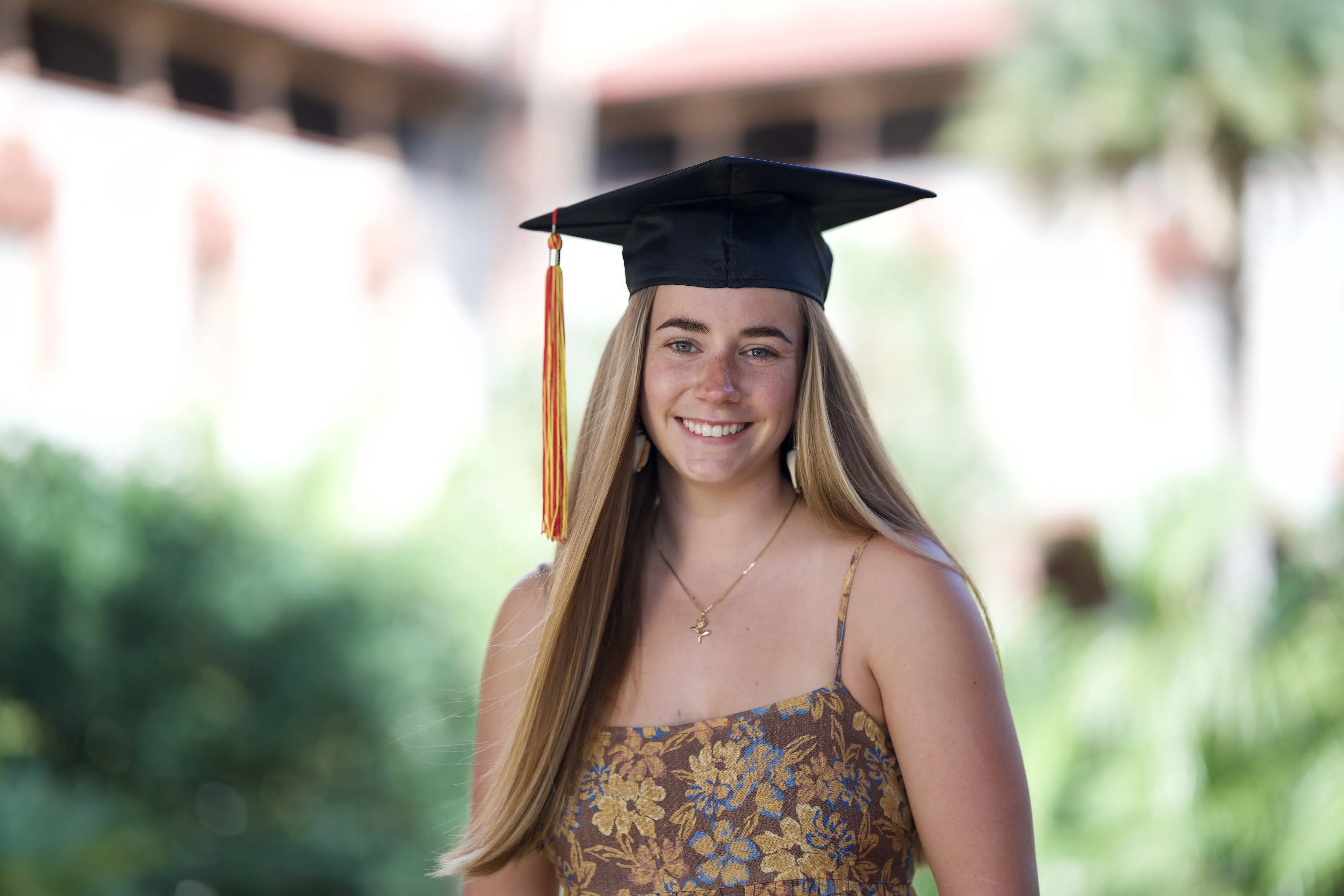
“Having undergraduate research experience is not something that a lot of colleges are able to provide and do,” Shaw said. “So, when I was applying to graduate schools and when I was starting to talk to my new advisor at the University of Connecticut, I felt ready. I felt prepared.”
This fall, she’ll build on these skills as she researches salt marsh restoration and biogeochemistry.
“It’s a field called blue carbon,” she said. “Essentially, marine plants can hold more carbon than plants on land (or terrestrial plants) can... I really want to go into work that’s climate change focused, and this is just my first step going toward that.”
